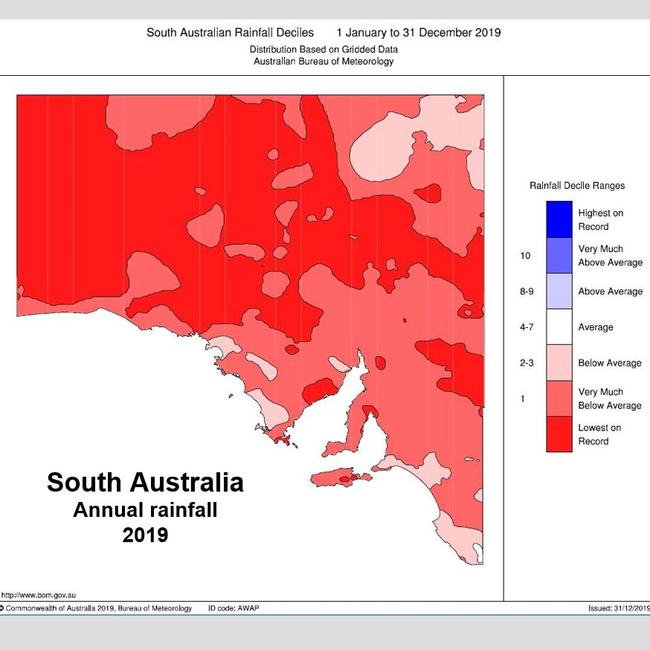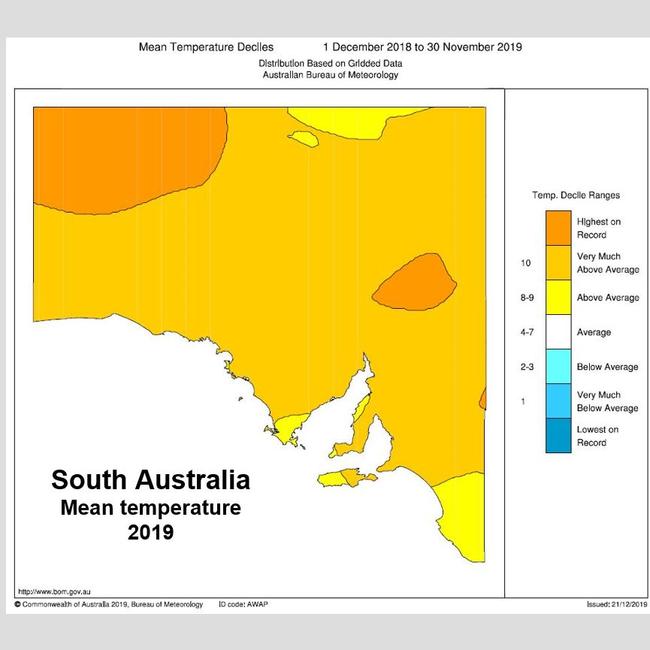2019 sends records tumbling in SA’s hot, dry year
If that felt like a damn dry, hot year you were right. Remember when the climate sceptics said global warming had ‘paused’? They were wrong.

SA News
Don't miss out on the headlines from SA News. Followed categories will be added to My News.
- January 24: The day we were the hottest city on earth
- February: SA ends hottest summer on record
- World reacts to Australia’s bushfire crisis
South Australia looks certain to have endured its driest year on record, the Bureau of Meteorology says.
Vast swathes of the state reported extremely dry conditions and blistering heat — including Adelaide hitting its record maximum of 46.6C on January 24.
Adelaide’s rainfall was 358mm, well below the long-term average of 528.3mm.
“It’s likely to have been the driest year recorded by SA and one of the warmest,” Bureau of Meteorology duty forecaster Tina Donaldson said.
The preliminary analysis is being checked with the bureau’s comprehensive report on 2019 weather to be published on January 9.

The lack of rain was evident across the state, particularly toward the northwest Outback, Eyre Peninsula, Upper Gulf St Vincent and even Kangaroo Island.
Ceduna, where records go back 81 years, had 125mm rain, less than half its average annual fall of 293.5mm.
Cleve was similarly dry, with 154.6mm compared to 357.2mm average.

Above average mean temperatures were tracked across the entire state.
Adelaide’s West Tce weather station reported 14 days above 40C.
Nullarbor hit 49.9C on December 19, the hottest maximum recorded in Australia last year and approaching the January 2, 1960, all-time record of 50.7C held by Oodnadatta Airport.

SA and Australia are not alone in experiencing record heat.
The World Meteorological Organisation says 2019 is expected to have been the second or third warmest on record and the decade the highest.
“More important than the ranking of any one individual year is the long-term warming trend,” it said.
“Temperatures are only part of the story.
“The past decade has been characterised by retreating ice, record sea levels, increasing ocean heat and acidification, and extreme weather.
“These have combined to have major impacts on the health and wellbeing of both humans and the environment.”
A full report from the organisation is due to be published in March.
